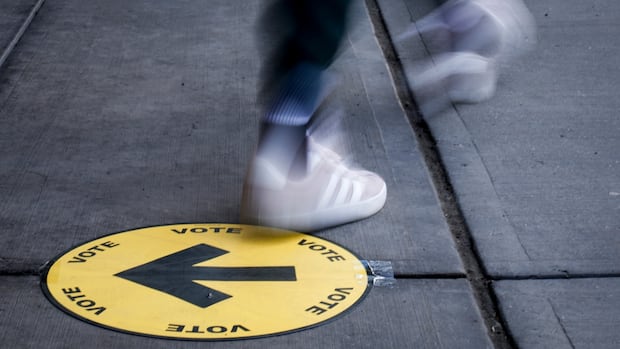Elections Canada says voters will need to write in their desired candidate during the upcoming byelection in Alberta’s Battle River-Crowfoot to avoid a massive ballot with more than 200 names.
The independent body said in a news release Monday that voters will be provided the special ballots at advance polls and on election day. Electors will need to write their preferred candidate’s name.
“This will replace the typical list-style ballot, on which electors mark a blank circle next to the name of the candidate of their choice,” the news release said.
Elections Canada said a full list of candidates will be available at polling stations.
Write-in ballots are used in every election for voters who cast their ballots outside of designated voting days — including at Elections Canada offices or via mail-in ballots.
The Elections Act allows the head of Elections Canada to make short-term changes in the case of “an unusual or unforeseen circumstance.”
A group of electoral reform advocates, known as the Longest Ballot Committee, has been organizing candidates to run in byelections in recent years in an effort to push for electoral reform.
The committee’s organizers want to put a citizens’ assembly in charge of electoral reform and say political parties are too reluctant to make government more representative of the electorate.
More than 200 candidates, mostly associated with the group, have signed up to run in the byelection next month. The vote was triggered after MP Damien Kurek vacated his seat to give Conservative Leader Pierre Poilievre a chance to rejoin the House of Commons. Poilievre lost his longtime Carleton riding in April’s general election.
As of Monday, 209 candidates had registered to run in the riding of Battle River-Crowfoot, exceeding the committee’s goal of 200.
That’s more than double the previous record of 91 which has occurred twice in the past year: during a byelection in LaSalle-Emard-Verdun last September and Carleton during the last general election.
That number of candidates resulted in a ballot roughly a metre long. The massive ballots have resulted in delays in vote-counting and confounded some voters.
Despite the switch for the Aug. 18 byelection, Elections Canada is cautioning that there could still be counting delays.
Elections Canada has had to make changes to accommodate the mammoth-sized ballots in the past — mostly through early counting and bringing in extra workers.
